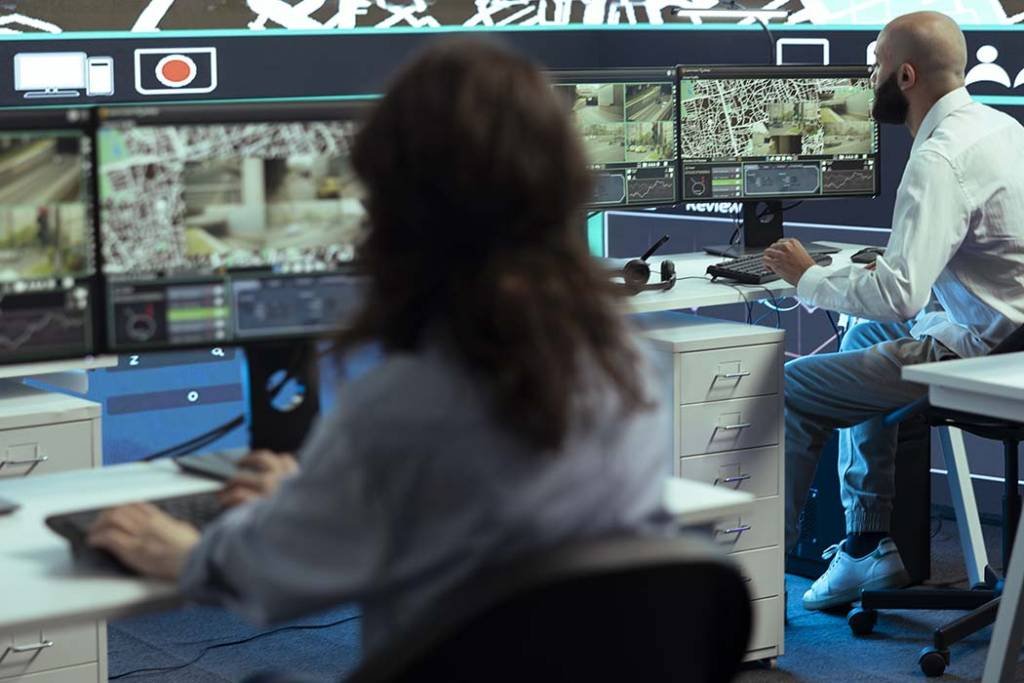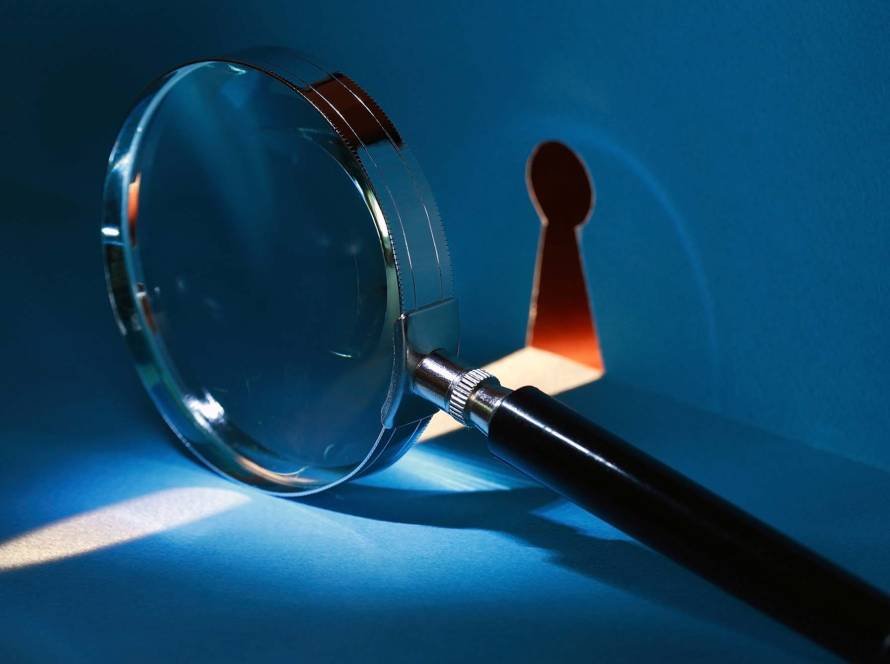Surveillance techniques are the cornerstone of the work carried out by elite private detectives, enabling them to uncover hidden truths and solve intricate mysteries. In the realm of investigative prowess, these techniques serve as the bedrock upon which successful operations are built. This article takes a focused look at the surveillance techniques utilized by these highly skilled professionals, offering an illuminating glimpse into their world of discreet observation, technological finesse, and strategic acumen. From sophisticated gadgetry that blurs the lines between fact and fiction to the artful study of behavioral nuances, we embark on a journey to unravel the essence of surveillance techniques that define the very essence of their craft. Join us as we peel back the layers of this captivating domain, revealing the tools and strategies employed by elite private detectives in their relentless pursuit of truth.
The Foundations of Surveillance Techniques
Surveillance techniques form the bedrock of effective investigative work, allowing elite private detectives to peer into the hidden facets of individuals’ lives and situations. These techniques are the culmination of skill, strategy, and technology, working in harmony to reveal the truth in even the most complex cases. In this section, we will delve into the fundamental aspects that underpin the art of surveillance, laying the groundwork for a deeper understanding of how these techniques are harnessed to bring clarity to the shadows.
1. Defining Surveillance Techniques:
- Clarify the scope and purpose of surveillance techniques within the realm of private investigations.
- Highlight how these techniques empower detectives to gather critical information discreetly.
2. The Expertise of Elite Private Detectives:
- Introduce the concept of elite private detectives as skilled practitioners of surveillance.
- Emphasize their unique blend of experience, training, and instinctive judgment.
3. The Symphony of Observation and Adaptation:
- Explore the dynamic interplay between keen observation and the ability to adapt in real time.
- Discuss how elite detectives harness both human intuition and technological tools for optimal results.
4. Cultivating Discretion:
- Explain the paramount importance of discretion in surveillance operations.
- Showcase how detectives master the art of staying unnoticed while meticulously observing their subjects.
5. Navigating Ethical Waters:
- Address the ethical considerations inherent in surveillance techniques.
- Detail how elite private detectives operate within legal boundaries and uphold moral standards.
6. Laying the Groundwork for Success:
- Reinforce how surveillance techniques serve as the foundation for any successful investigation.
- Pique interest in the subsequent sections, which will delve into specific methods employed by elite detectives.
Leveraging Advanced Technology
Private detectives are increasingly leveraging advanced technology to enhance their capabilities in assessing personal and residential security. With the rapid evolution of technological tools, these professionals can now conduct more comprehensive and efficient security assessments. By integrating cutting-edge technology into their investigative processes, private detectives are better equipped to identify vulnerabilities, anticipate potential threats, and recommend targeted security solutions.
From high-resolution surveillance cameras and motion sensors to smart home automation systems, advanced technology allows private detectives to monitor and analyze security situations in real-time. This data-driven approach enables them to make informed decisions about the most effective security measures for a given situation. Furthermore, the use of digital forensics and data analysis tools helps detectives uncover potential risks in online activities and information sharing.
Modern communication tools also enable private detectives to collaborate seamlessly with their clients and other security professionals. Virtual meetings, secure messaging platforms, and encrypted communication channels facilitate the exchange of crucial information while maintaining confidentiality. Additionally, private detectives can harness the power of geolocation data and social media analysis to track movements, identify patterns, and assess potential threats to individuals or residences.
Mastering Behavioral Analysis
Mastering behavioral analysis is a critical skill for private detectives as it enables them to uncover valuable insights about individuals’ intentions, motivations, and potential threats. Behavioral analysis involves observing and interpreting human behavior to understand patterns, trends, and anomalies that can be indicative of various psychological, emotional, or security-related factors. Here’s how private detectives can excel in this skill:
- Observation Skills: Private detectives must develop keen observation skills to pick up on subtle cues in a person’s demeanor, body language, and verbal expressions. These observations can provide valuable information about a person’s emotional state, level of comfort, and potential deception.
- Psychological Insight: A deep understanding of human psychology is essential for effective behavioral analysis. Detectives should be familiar with principles of psychology, such as microexpressions, cognitive biases, and nonverbal communication, to accurately interpret behavior.
- Pattern Recognition: Detectives need to identify behavioral patterns over time to detect any deviations or changes that might signal a shift in intentions or motivations. Recognizing unusual behaviors can help uncover hidden agendas or potential threats.
- Contextual Analysis: Behavioral analysis should always consider the context in which behavior occurs. Detectives need to understand the environment, social dynamics, and personal history of individuals to make accurate assessments of their actions.
- Emotional Intelligence: Being attuned to emotions is crucial for behavioral analysis. Detectives with high emotional intelligence can empathize with subjects, gaining a deeper understanding of their motivations and potential triggers for certain behaviors.
- Interviewing Techniques: Effective interviewing skills are paramount for detectives to elicit relevant information and observe behavioral cues from subjects. Open-ended questions and active listening techniques can help uncover hidden motives or inconsistencies.
- Cultural Awareness: People from different cultures exhibit behaviors differently. Detectives should be culturally sensitive and aware of cultural norms to accurately interpret behavior without misjudgment.
- Data Analysis: Incorporating data-driven approaches can enhance behavioral analysis. Detectives can use information from various sources, such as online activities and social media, to build a comprehensive profile of an individual’s behavior.
- Ethical Considerations: Ethical guidelines are crucial when analyzing behavior. Private detectives must ensure that their analysis respects privacy and legal boundaries, avoiding any intrusion or manipulation.
- Continuous Learning: Behavioral analysis is an evolving field. Detectives should engage in continuous learning to stay updated on the latest research, techniques, and tools related to understanding human behavior.
Mobile Surveillance Techniques
Mobile surveillance techniques are essential tools for private detectives in their efforts to gather information, monitor individuals, and conduct investigations discreetly. These techniques involve the use of mobile devices and vehicles to observe and document the activities of subjects while maintaining a low profile. Here are some key aspects of mobile surveillance techniques:
- Vehicle Selection: Private detectives choose vehicles that blend into the surrounding environment to avoid drawing attention. This often means using inconspicuous cars or ones that are commonly seen in the area.
- Discreet Observation: Detectives use mobile devices such as smartphones, tablets, or specialized surveillance equipment to discreetly observe and record subjects’ activities from a distance.
- Use of Binoculars and Cameras: Binoculars and high-quality cameras equipped with zoom lenses are used to observe subjects and capture clear images and videos, even from a distance.
- Adapting to Traffic and Routes: Mobile surveillance requires knowledge of traffic patterns and routes to follow subjects without being detected. Detectives may use navigation apps to adapt to changing traffic conditions.
- Maintaining Distance: A crucial aspect of mobile surveillance is maintaining a safe and reasonable distance from the subject’s vehicle or location to avoid arousing suspicion.
- Blend-In Techniques: Detectives may adopt techniques like changing vehicles during surveillance or using rental cars to prevent subjects from recognizing the same vehicle repeatedly.
- Team Coordination: Complex surveillance operations may involve a team of detectives working together. Effective communication and coordination are vital to ensure seamless observation and information sharing.
- Nighttime Surveillance: Mobile surveillance techniques extend to nighttime operations, requiring the use of specialized equipment such as night-vision cameras to maintain visibility.
- Data and Evidence Collection: Detectives document observations, capturing photos, videos, and notes that can be used as evidence in investigations.
- Legal and Ethical Considerations: Surveillance activities must comply with legal and ethical guidelines. Private detectives must respect privacy rights and avoid invasive tactics.
- Reporting and Analysis: Detectives compile comprehensive reports detailing their observations, behaviors, and any relevant information gathered during surveillance.
- Adapting to Situations: Surveillance techniques vary based on the nature of the case, the subject’s behaviors, and the specific goals of the investigation. Detectives need to be adaptable and quick-thinking.
- Electronic Surveillance: In addition to physical surveillance, private detectives may employ electronic surveillance tools like GPS trackers to monitor the movements of vehicles discreetly.
- Pre-Surveillance Research: Effective mobile surveillance begins with thorough research on the subject, including routines, habits, and known associates. This information guides surveillance strategies.
- Continuous Training: Surveillance techniques require ongoing training to stay updated on new technologies, tactics, and legal regulations.
GPS Tracking and Location Monitoring

GPS tracking and location monitoring are valuable tools used by private detectives to gather real-time information about the movements and activities of individuals or assets. These techniques leverage Global Positioning System (GPS) technology to accurately track the location of a target and provide valuable insights for investigative purposes. Here’s how GPS tracking and location monitoring are utilized:
- Real-Time Tracking: GPS tracking devices, often small and discreet, are placed on vehicles, personal items, or individuals to provide real-time updates on their exact location.
- Asset Recovery: GPS tracking is commonly used for asset recovery, such as locating stolen vehicles or valuable items. Private detectives can track the movement of these assets and assist law enforcement in recovering them.
- Surveillance Enhancement: GPS tracking enhances surveillance efforts by allowing detectives to follow subjects without needing to be physically present at all times. This is particularly useful for cases requiring long-term observation.
- Evidence Collection: GPS data can be used as evidence in legal cases. Location records from GPS devices can provide a timeline of a subject’s movements, which can be crucial for building a case.
- Behavioral Analysis: By analyzing patterns of movement, detectives can gain insights into a subject’s routines, behaviors, and potential associations.
- Alibi Verification: GPS tracking can help verify alibis or inconsistencies in a subject’s statements by cross-referencing their claimed whereabouts with actual locations.
- Child and Elderly Safety: GPS tracking is used to monitor the safety of children, elderly individuals, or people with special needs. Caregivers or family members can keep track of their loved ones’ movements to ensure their well-being.
- Employee Monitoring: In some cases, employers use GPS tracking to monitor the movements of employees, particularly for work-related activities like delivery services.
- Legal and Ethical Considerations: Private detectives must adhere to legal and ethical guidelines when using GPS tracking. Consent may be required to track individuals and privacy rights must be respected.
- Data Security: Secure transmission and storage of GPS data are important to prevent unauthorized access or misuse of sensitive location information.
- Battery Life and Maintenance: Detectives need to manage the battery life of tracking devices to ensure uninterrupted monitoring. Regular maintenance is also essential to ensure devices remain functional.
- Emergency Situations: GPS tracking devices can be crucial in emergency situations, enabling rapid response teams to locate individuals in distress quickly.
- Discreet Placement: Detectives strategically place GPS devices on vehicles or objects where they are unlikely to be detected, ensuring the effectiveness of tracking efforts.
- Training and Expertise: Effective use of GPS tracking requires training in device operation, data interpretation, and legal compliance.
Conclusion
In conclusion, elite private detectives employ a range of sophisticated surveillance techniques that set them apart as masters of their craft. Through a combination of meticulous planning, cutting-edge technology, and astute observation, these professionals excel in gathering critical information discreetly and ethically. Their ability to adapt to various scenarios, maintain a low profile, and employ advanced tools ensures the success of their surveillance operations.
From mobile surveillance techniques that involve inconspicuous vehicles and real-time GPS tracking to the mastery of behavioral analysis, elite detectives possess a unique skill set that allows them to uncover hidden truths, track movements, and make informed decisions. Their expertise in gathering evidence, verifying alibis, and providing invaluable insights serves a wide range of clients, including individuals, corporations, and legal entities.
Ethical considerations remain paramount, guiding the actions of elite private detectives as they navigate complex situations. Respect for privacy rights, adherence to legal regulations, and a commitment to maintaining the utmost professionalism underpin their operations.
In a world where information is often elusive, elite private detectives stand as the guardians of truth, employing their unparalleled surveillance techniques to unveil mysteries, mitigate risks, and contribute to the pursuit of justice. Through their dedication to continuous learning, mastery of technology, and unwavering commitment to ethical practices, these professionals play an indispensable role in the realm of investigation and security.




